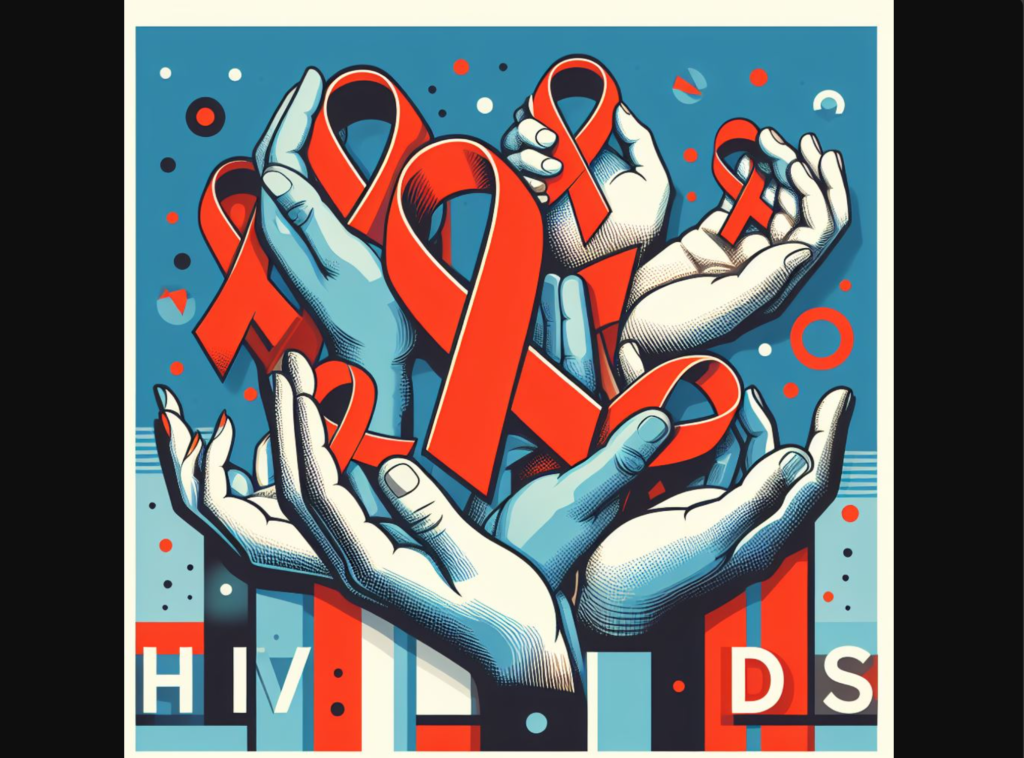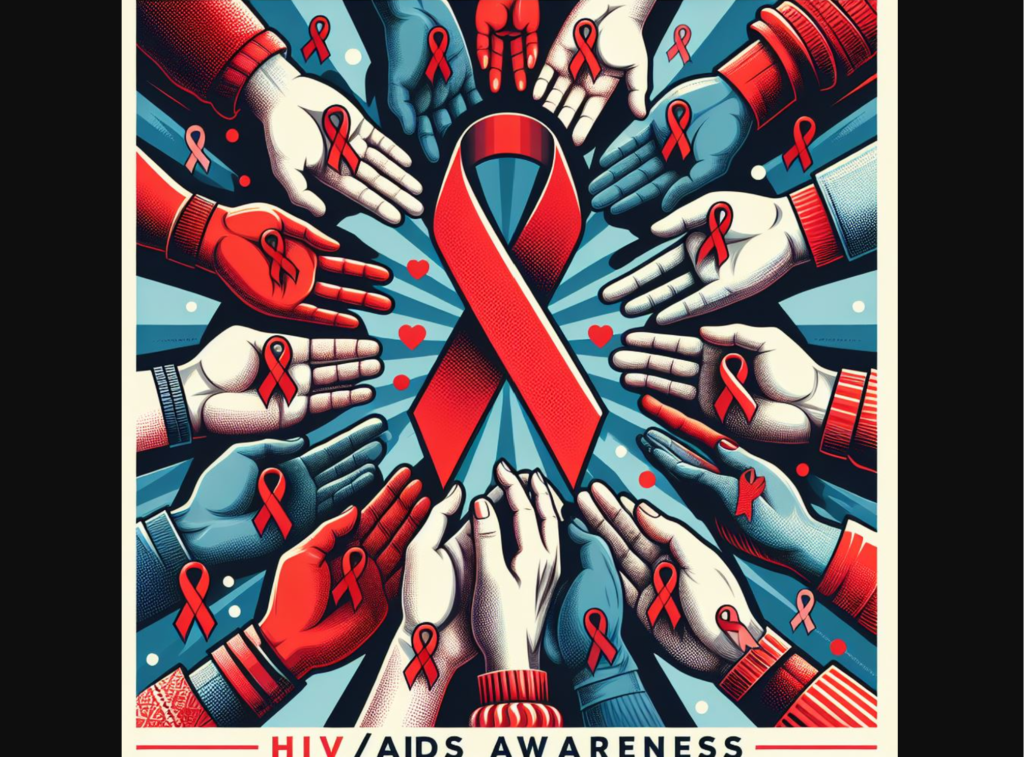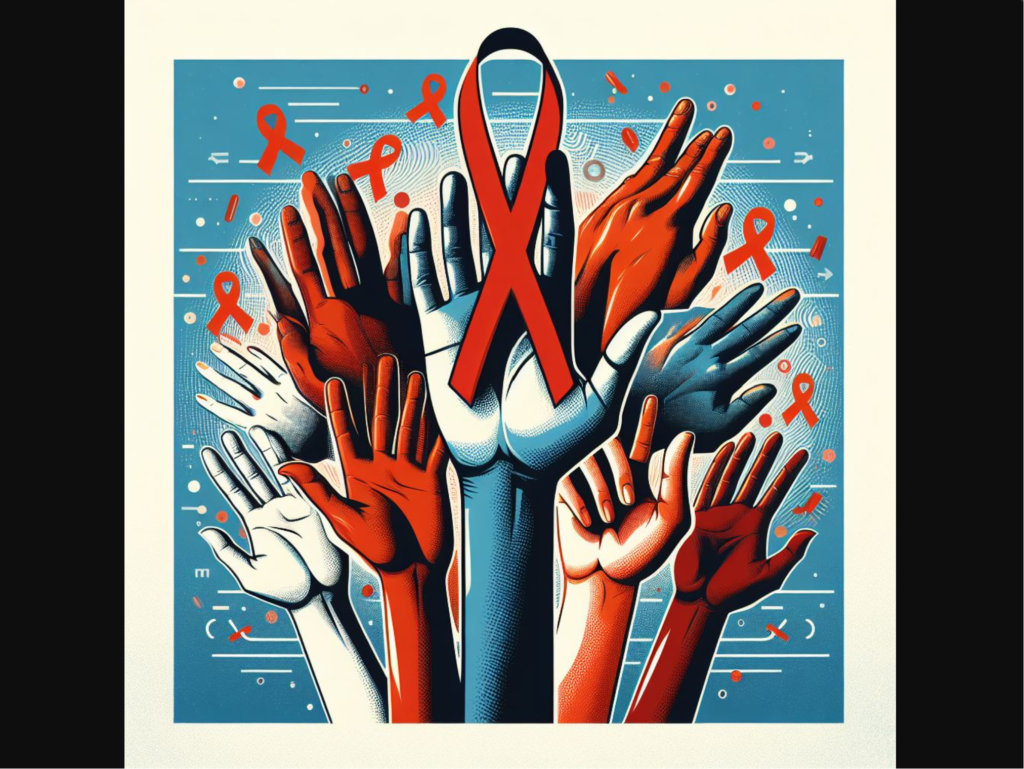World AIDS Day is an annual event that takes place on December 1st. It is a time to remember the millions of lives lost to AIDS-related illnesses, to show support and solidarity for people living with HIV, and to call for action to end the AIDS epidemic. The theme for World AIDS Day 2023 is “Global solidarity, shared responsibility”. This theme reflects the need for collective and coordinated efforts to achieve the global goals of ending AIDS as a public health threat by 2030 and ensuring health and human rights for all.
The Global Situation of HIV and AIDS
According to the latest data from UNAIDS, there are an estimated 38 million people living with HIV worldwide, of whom 25.4 million are accessing antiretroviral therapy. However, there are still significant gaps and challenges in the HIV response, such as:
- In 2020, 1.5 million people became newly infected with HIV and 690,000 people died from AIDS-related illnesses.
- There are 12.2 million people living with HIV who are not aware of their status and 12.6 million people who are not receiving treatment.
- There are key populations and regions that are disproportionately affected by HIV, such as gay men and other men who have sex with men, sex workers, people who inject drugs, transgender people, prisoners, migrants, adolescents, young women, and sub-Saharan Africa.
- There are persistent barriers to accessing HIV prevention, testing, treatment, and care services, such as stigma, discrimination, criminalization, violence, poverty, and lack of funding.
Also read :HIV/AIDS : A Patient’s Guide To HIV/AIDS And Its Symptoms

The Role of Communities in the HIV Response
Communities are at the forefront of the HIV response, playing vital roles in providing services, advocacy, innovation, and accountability. Communities of people living with, at risk of, or affected by HIV are the best placed to understand the needs, challenges, and solutions of their peers. They can:
- Reach out to the most marginalized and hard-to-reach groups and deliver person-centered and tailored services.
- Mobilize resources and demand political commitment and action from governments and other stakeholders.
- Advocate for the rights and dignity of people living with and affected by HIV and challenge the laws and policies that harm them.
- Monitor the quality and coverage of HIV services and hold the providers and decision-makers accountable.
- Innovate and adapt to the changing needs and contexts of the HIV epidemic.

The Call to Action for World AIDS Day 2023
World AIDS Day 2023 is more than a celebration of the achievements of communities; it is a call to action to enable and support communities in their leadership roles. To unleash the full potential of community leadership to end AIDS, the following actions are needed:
- Communities’ leadership roles need to be made core in all HIV plans and programmes and in their formulation, budgeting, implementation, monitoring, and evaluation. “Nothing about us without us.”
- Communities’ leadership roles need to be fully and reliably funded to enable the required scale-up and be properly supported and remunerated. “Not ending AIDS is more expensive than ending it.”
- Barriers to communities’ leadership roles need to be removed. An enabling regulatory environment is needed that facilitates communities’ role in the provision of HIV services, ensures civil society space, and protects the human rights of all, including marginalized communities, to advance the global HIV response. “Remove laws that harm, create laws that empower.”

Conclusion
World AIDS Day is a time to unite and act to end the AIDS epidemic. By supporting and empowering communities in their leadership roles, we can achieve the global solidarity and shared responsibility that are essential for a successful HIV response. Together, we can end AIDS by 2030 and ensure health and human rights for all.
Frequently Asked Questions (FAQs) – World AIDS Day
Q: When is World AIDS Day observed?
A: World AIDS Day is observed annually on December 1st.
Q: What is the significance of World AIDS Day?
A: World AIDS Day is a global observance dedicated to raising awareness about HIV/AIDS, commemorating those who have lost their lives to AIDS-related illnesses, and showing solidarity with people living with HIV.
Q: Why was World AIDS Day established?
A: World AIDS Day was first observed in 1988 to bring attention to the global HIV/AIDS epidemic and encourage collective action in the fight against the disease
Q: What is the theme for World AIDS Day 2023?
A: The theme for World AIDS Day 2023 is “Global Solidarity, Shared Responsibility.” This theme emphasizes the need for unity and collective responsibility in addressing the global HIV/AIDS crisis.
Q: What progress has been made in the fight against HIV/AIDS?
A: Significant progress has been made, including the development of antiretroviral therapy (ART), which allows people living with HIV to lead longer and healthier lives. Increased awareness and education have also contributed to preventing new infections
Q: What challenges persist in the global response to HIV/AIDS?
A: Challenges include ongoing stigma and discrimination, limited access to healthcare services, and disruptions caused by the COVID-19 pandemic, which have strained HIV prevention and treatment efforts
Q: How can individuals contribute to the fight against HIV/AIDS?
A: Individuals can contribute by raising awareness, supporting organizations working on HIV/AIDS initiatives, getting tested regularly, promoting safe practices, and advocating for policies that address stigma and discrimination.
Q: What is the role of testing and early treatment in HIV prevention?
A: Testing and early treatment are crucial in controlling the spread of HIV. World AIDS Day emphasizes the importance of knowing one’s status, accessing treatment promptly, and preventing new infections through awareness.
Q: How does World AIDS Day address stigma and discrimination?
A: World AIDS Day encourages open conversations to challenge misconceptions, dismantle stereotypes, and foster a supportive environment for individuals living with HIV, aiming to end the stigma associated with the disease.
Q: How can communities get involved in World AIDS Day?
A: Communities can organize events, campaigns, and outreach programs on World AIDS Day to educate, commemorate, and advocate for policies that support the global response to HIV/AIDS.
Also read : Blood Cancers : A Patient’s Guide to Blood Cancers And Its Symptoms




































